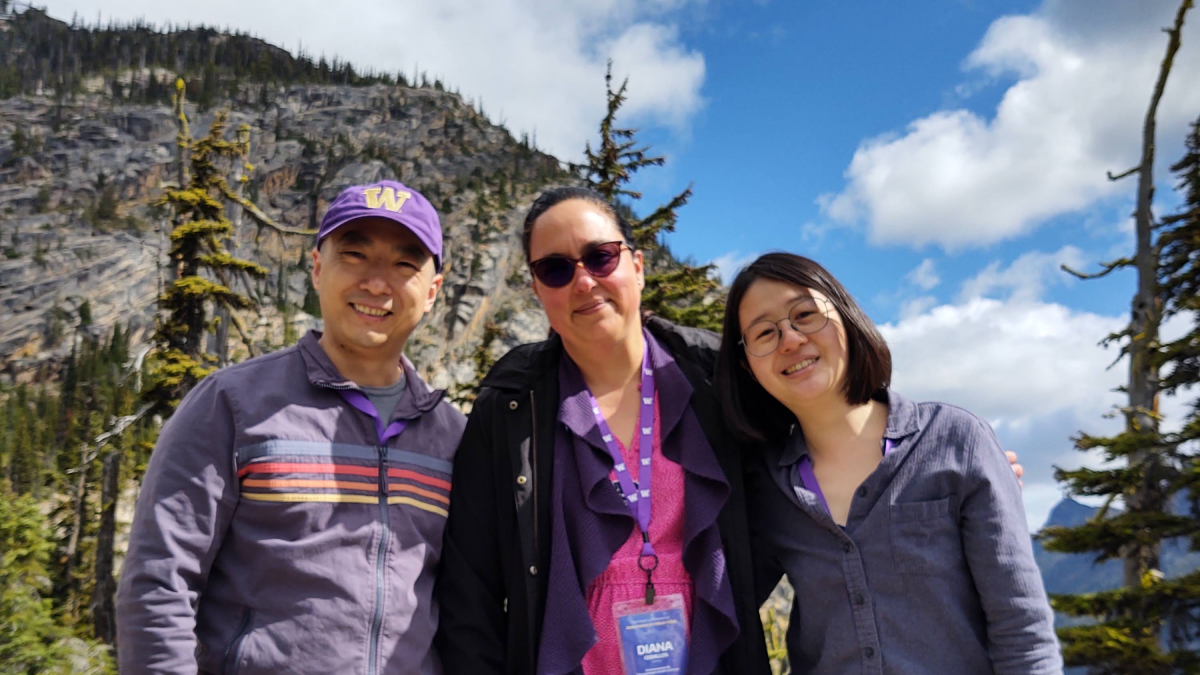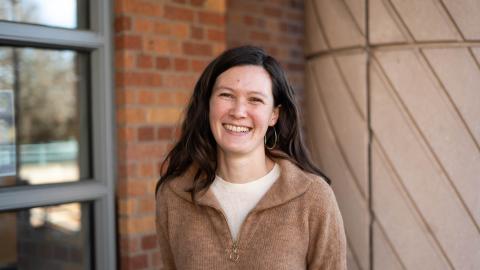In June, 30 new faculty members at the UW took a five-day, 1,000-mile-plus bus tour around Washington state to get to know the state’s diverse landscape and people, as well as their new colleagues.
For three new faculty members in the Department of Environmental & Occupational Health Sciences (DEOHS), the tour also connected them with communities facing some of the most pressing environmental health issues in the region.
Stopping at 15 sites including the Yakima Valley Farm Workers Clinic, the Grand Coulee Dam, and the Confederated Tribes of the Colville Reservation, Assistant Professors Diana Ceballos, Tzu-Hsin Karen Chen and Yijie Geng heard residents’ concerns about pollution and worker health in their communities. Some participating hosts even joined the faculty on the bus and shared stories as they were traveling.
“It was a transformational experience, as we not only got to see incredible sites around the state but also met and connected with many of the diverse communities that make this state so rich—communities where our students come from,” Ceballos said.
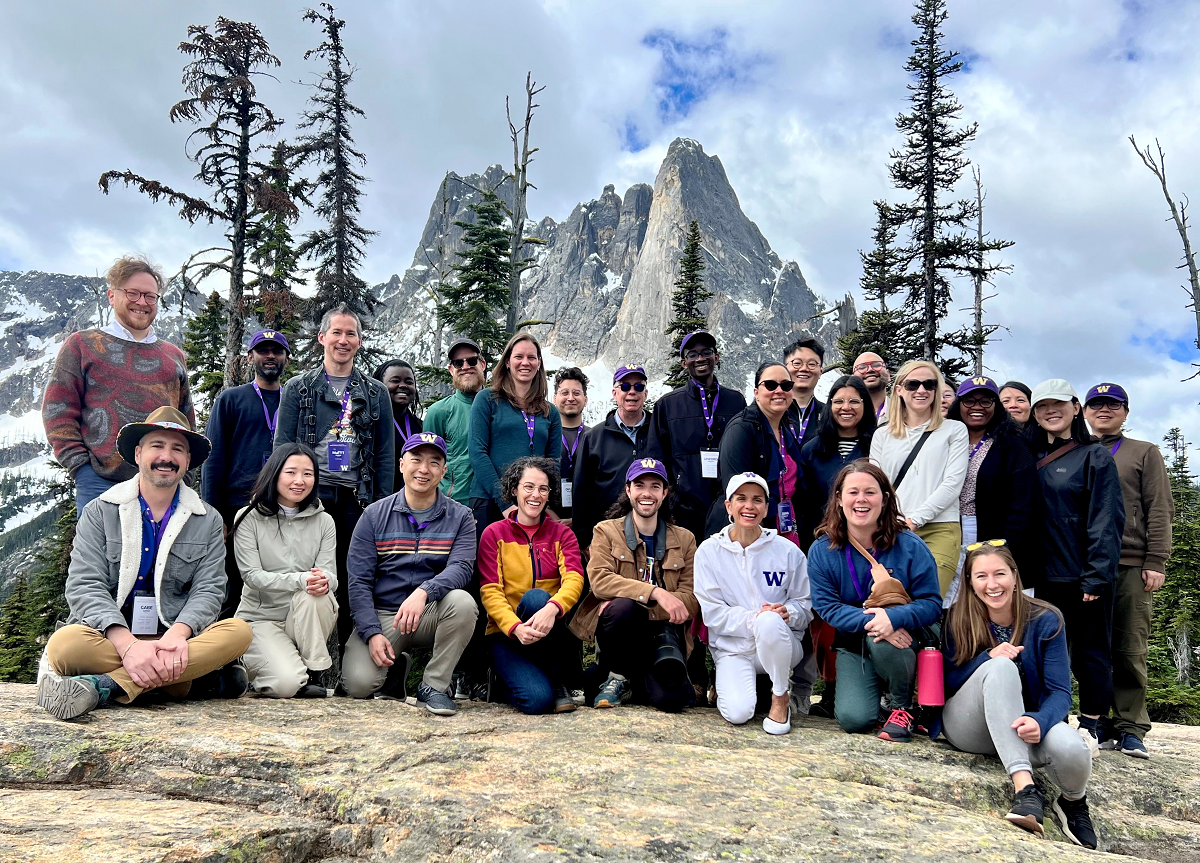
History and current concerns on the Colville Reservation
As the tour wound around the state, the researchers came face to face with environmental stressors and the communities they impact. For example, just before visiting the Confederated Tribes of the Colville Reservation, the tour stopped at the Grand Coulee Dam.
“It was very visual, how this huge infrastructure project had upended their lives,” Ceballos said, noting that the tribes centered salmon runs on the Columbia River for thousands of years before the dam was built.
Chen, who is also a faculty member in the Department of Urban Design and Planning, was struck by stories of the floods that inundated surrounding communities after the dam was built, as well as the tribes’ current efforts to build a hospital and work with the UW to recruit staff.
During the visit, Geng talked with a tribal chief about their plan to apply for Superfund site status on the reservation. The recognition could help clean up heavy metal contamination in their water that comes from a smelting plant upstream on the Columbia River.
Ceballos heard tribal members’ concerns about exposure to wildfire smoke, and later connected them with the UW Center for Environmental Health Equity, housed in DEOHS.
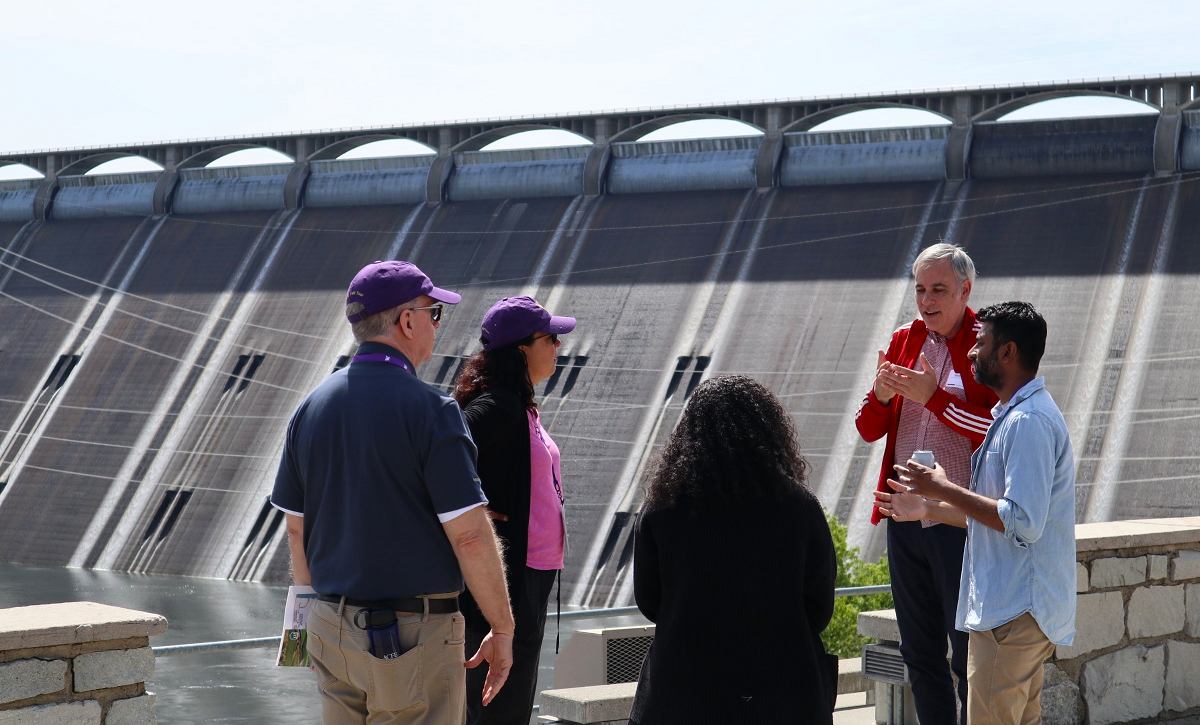
Community health in the Yakima Valley
In the Yakima Valley, the faculty visited the Yakima Valley Farm Workers Clinic and met students from Heritage University.
“It was very educational to hear their stories and where they come from, because we have those heritage students too at the UW,” Ceballos said.
Geng also spoke with faculty from Heritage University about their concerns about water contamination with pesticides and other toxicants, sharing his research on the connection between contaminants and autism.
At a visit to Two Mountain Winery, Chen, who uses satellite data to understand environmental change, learned that the winery uses remote sensing methods to monitor vegetation and observe the health of their plantings and drought risk. She plans to weave the information into her future classes on remote sensing.
“Since 70% of our students are from the U.S., bringing examples that are related to their own lived experiences will be helpful,” she said.
The future of farming
In eastern Washington, where waves of wheat fields extend to the horizon, the group heard from growers at Schoesler Wheat Farm, who are using new low-irrigation techniques and machines that require fewer workers.
“It makes me think of the future of farming: it's good for the economy overall, but it doesn't create a lot of jobs,” Ceballos said. But, she reflected, these tools might allow a better alternative to the bare lands that existed there before, and reduce workers’ exposure to heat, wildfire smoke and pesticides.
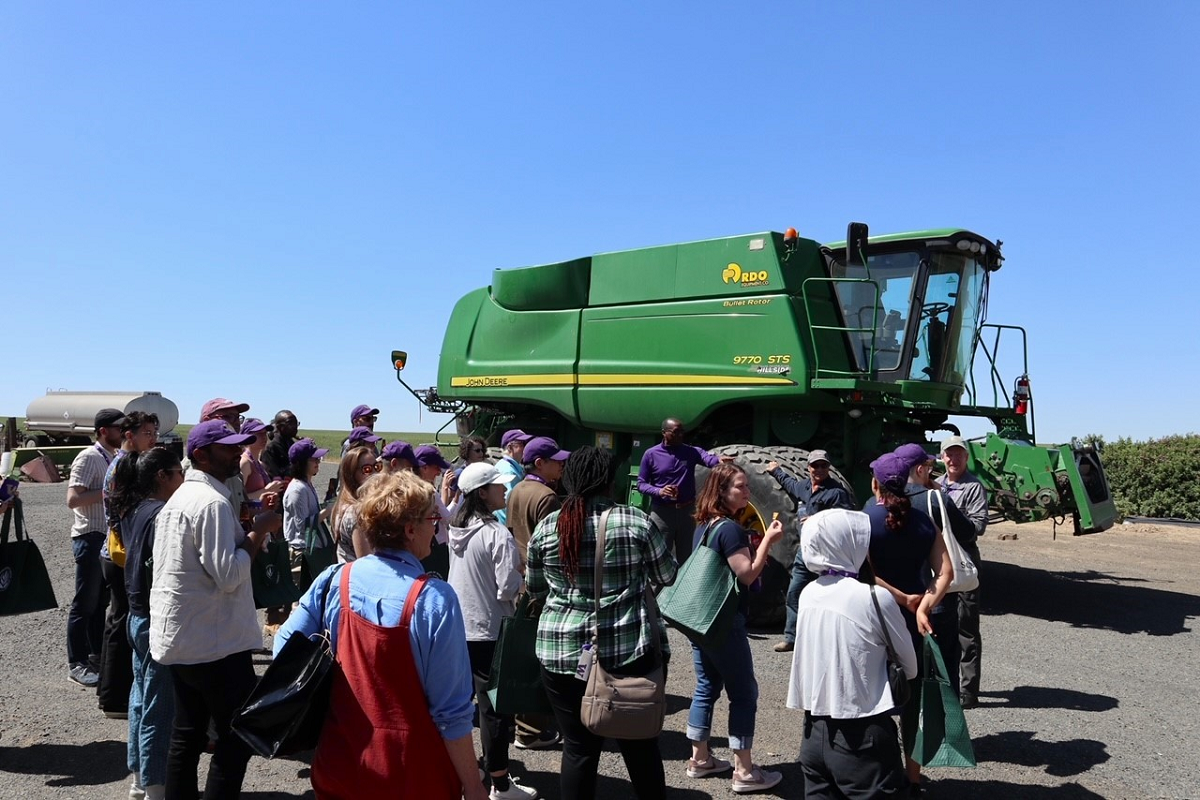
Forging future collaborations
In addition to connecting with communities, new faculty members in wildly different disciplines got to know each other better, and even hatched plans to work together in the future.
For example, Geng talked with Léonard Boussioux of UW Information Systems and Operations Management about their joint interest in how the environment impacts both animals and humans. And he was touched when a member of the art faculty offered to make a drawing for his research papers.
Chen chatted with Renee Desing of Mechanical Engineering, whose work focuses on diversity and inclusion in engineering, about different approaches for integrating the use of AI in their students’ education.
Ceballos was inspired by meeting Andrew Hedding of Linguistics, who works with Indigenous languages and agricultural communities, and later connected him with DEOHS’s Pacific Northwest Agricultural Safety and Health Center.
Finding a sense of belonging
To keep the connections going, Chen hopes to organize a new faculty office tour so that the new friends can see each other’s campus habitats and communities.
“I'm not only a new faculty here in the university, I'm also new to the state of Washington,” Geng said. “So it felt really great for me to tour around the state and to get connected with locals. I felt that I was able to develop a sense of belonging to the state and to the university.”
